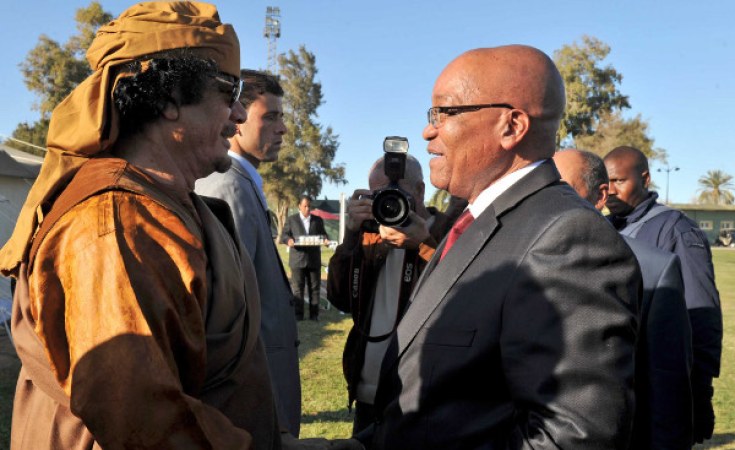The International Criminal Court (ICC) has issued warrants of arrest for Colonel Muammar al-Gaddafi, his son and his intelligence chief on charges arising out of attacks by Libyan troops on civilian demonstrators in Benghazi and other cities since February this year.
A court panel, headed by Botswana judge Sanji Mmasenono Monageng, said there were reasonable grounds to believe that Gaddafi, Saif Al-Islam Gaddafi and Abdullah Al-Senussi, committed crimes against humanity, including murder and persecution. It cited the killing, injuring and arrests of hundreds of civilians.
Spelling out the accusations against the three, the panel said there were reasonable grounds to believe:
- That Gaddafi and his inner circle, including his son, "conceived a plan to deter and quell, by all means, the civilian
demonstrations against the regime", and
- That Abdullah Al-Senussi "used his powers over the military forces, commanded the forces in Benghazi and directly
instructed... troops to attack civilians demonstrating in the city."
The panel said although Gaddafi junior had no official position, he was Gaddafi's "unspoken successor and the most influential person within his inner circle and, as such, he exercised control over crucial parts of the State apparatus, including finances and logistics and had the powers of a de facto Prime Minister."
The court also said that following the uprising and Tunisia and Egypt, "a state policy was designed at the highest level of the Libyan state machinery... aimed at deterring and quelling, by any means, including by the use of lethal force, the demonstrations of civilians against the regime ... which started in February ...
"In furtherance of the... policy, from 15 February until at least 28 February, the Libyan security forces, which encompass units of the security and military systems, carried out throughout Libya – and in particular in Tripoli, Misrata and Benghazi as well as in cities near Benghazi such as Al-Bayda, Derna, Tobruk and Ajdabiya – an attack against the civilian population taking part in demonstrations ... or those perceived to be dissidents, killing and injuring as well as arresting and imprisoning hundreds of civilians."
The court said the arrests appeared necessary to ensure the suspects appeared, that they did not obstruct court investigations, and to stop them from continuing to commit further crimes.
The other judges on the panel were Sylvia Steiner of Brazil and Cuno Tarfusser of Italy. The case was referred to the ICC by the United Nations Security Council, in a resolution unanimously passed in February.


